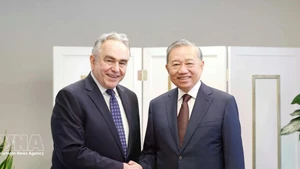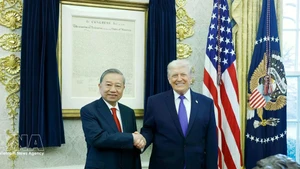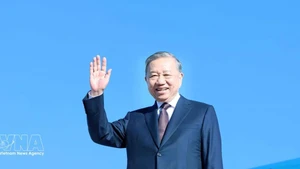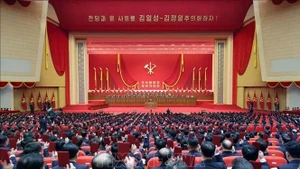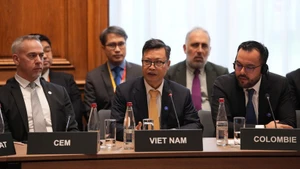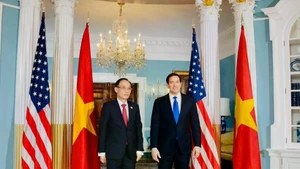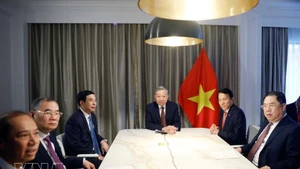Lauding TMC’s contributions to Vietnam's socio-economic development over the years, Ha said he hoped the firm will continue to help deepen the cooperation and the intensive strategic partnership between Vietnam and Japan.
He suggested that Toyota should continue to increase the localisation rate of its automobiles produced in Vietnam, using new, green and clean technologies, contributing to implementing Vietnam’s net-zero emission commitments.
Toyota should design a roadmap for infrastructure construction, human resources training and technology transfer in order to strongly develop the supply chain of auto parts and components in Vietnam for the production of fuel-saving, emission-reducing and environment-friendly vehicles, he said.
Affirming that the Vietnamese Government will consider support policies in land use, administrative procedures and finance to investors, Ha said he hoped the world's leading automobile groups such as Toyota will play a key role in the automobile supporting industry ecosystem in Vietnam, thus not only supplying for the domestic market but also the global automobile industry.
For his part, Hao said that Toyota is focusing on researching and transferring new and environmentally-friendly technologies in the production of most popular cars in Vietnam, helping to reduce emissions from transport vehicles.
He vowed to continue implementing initiatives and technical support as well as policy consultancy on green transition, energy transition and air quality improvement in Vietnam.
Hao also asked for assistance in expanding the network of spare part and accessory suppliers, thus increasing the localisation rate of domestically produced vehicles.
Later on the same day, Deputy PM Tran Hong Ha received Kirsten Schuijt, Director General of the World Wide Fund for Nature (WWF), who highly valued the directions given by the Government of Vietnam in domestic and global conservation efforts.
WWF has witnessed the achievements of Vietnam in the field, including its commitment made at the 26th UN Climate Change Conference of Parties (COP26); the participation in the development of a global agreement on plastic pollution; the implementation of the global biodiversity framework; and the joining to the meetings of parties to the Montreal Protocol on Substances that Deplete the Ozone Layer, she said.
The WWF leader said that the organisation will implement a number of new projects on biodiversity conservation, forest protection, and climate change response in Vietnam.
Schuijt, who is also Chief Executive of WWF Netherlands, shared the Netherlands’ experience in solving challenges in climate change response and nature conservation, and expressed her hope that in the coming time, the two sides will cooperate more closely in implementing solutions in forest development and the management and protection of freshwater resources, along with specific projects to implement the Montreal Protocol and promote food production and consumption methods in harmony with nature.
Ha expressed his delight at the effective partnership between Vietnam and the Netherlands and the WWF, especially in environmental protection, biodiversity preservation, sustainable use of natural resources, climate change mitigation, and water resource management.
He affirmed that Vietnam is willing to accompany the WWF in implementing new ideas and new approaches to common goals in the current period, and he hoped the WWF leader will share experience in expanding nature reserves in parallel with sustainable economic development.
Sharing the WWF leader’s viewpoint in harmony between economic development and natural conservation, Ha said it is necessary to make specific steps with technical and policy support, human resources training and financial mechanisms to successfully implement pilot models and expand them.
Vietnam hoped to receive assistance in knowledge, techniques and experience in the conservation of nature and biodiversity in association with sustainable economic development, he said.
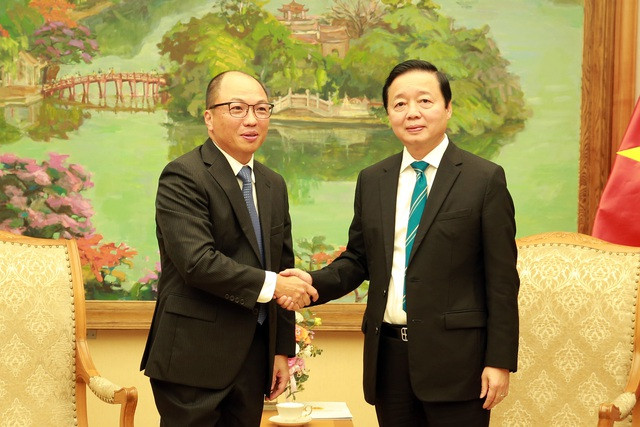
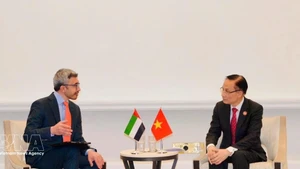
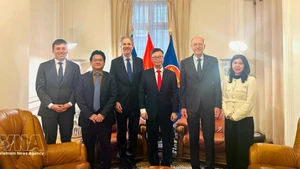
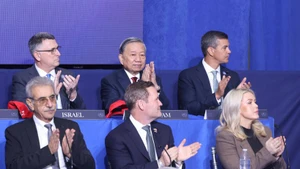
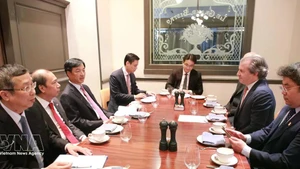
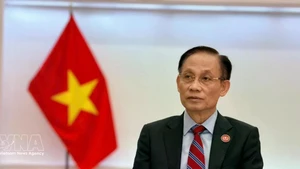
![[In pictures] Party General Secretary To Lam meets US President Donald Trump](https://en-cdn.nhandan.vn/images/dcd63867a0eed4c7753eb4bfb346593abc1ce710dfab8ad1b9aebd75ea6bf930b2ea13e4664779d689ba40aadd80f76d5d05d1208720fd7b0d811ace3a3297321c78cf738400e136e3f2d8790b24d43646e46edbe19517144a88f6ffb0d528f153574a7109328cc0949e4a4c16433c2ff751541639eefe4490518227264cbf8e/vna-potal-tong-bi-thu-to-lam-gap-tong-thong-hoa-ky-donald-trump-8599945.jpg.webp)
